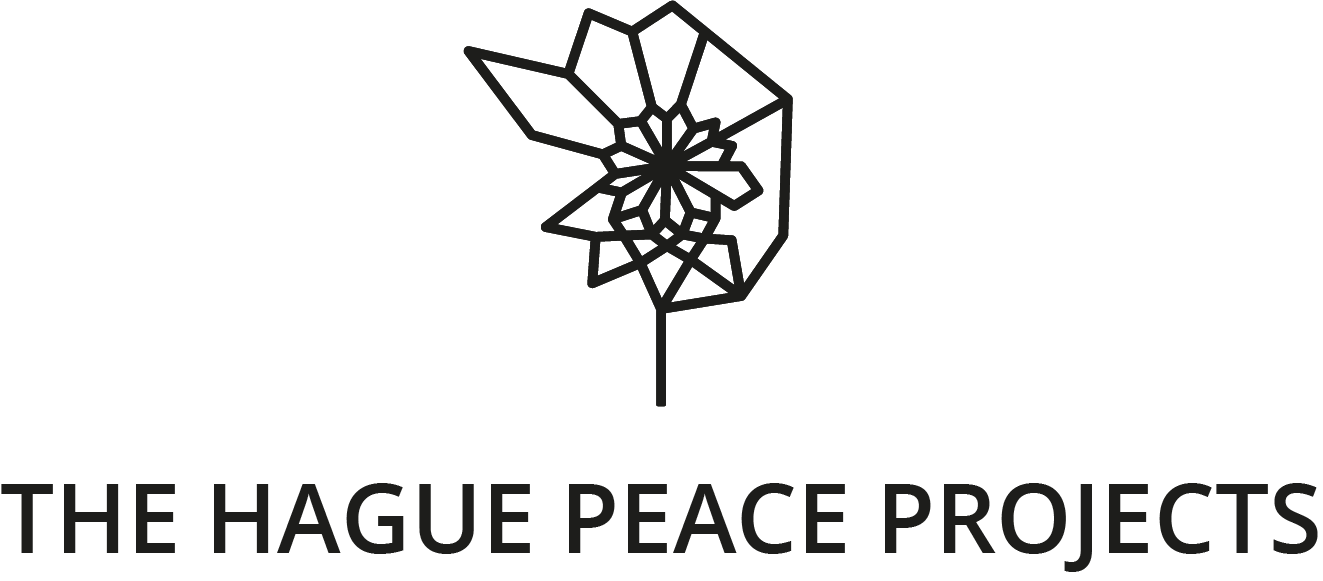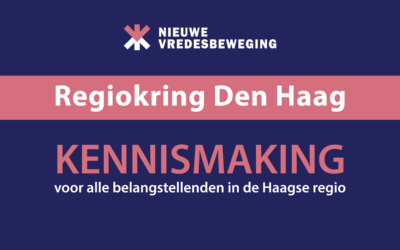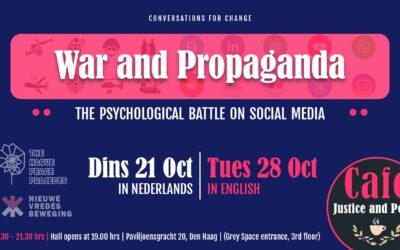A Palestinian struggle in exile
By Fatima Mahmoud
We Palestinians in exile feel lost, caught between countries, languages, traditions, and identities. We can hold every passport in the world except our own. We are born everywhere but in our own land. We live everywhere but in our own country. We feel out of place because it is and will never be our place. This enduring feeling of being out of place continues throughout my family history.
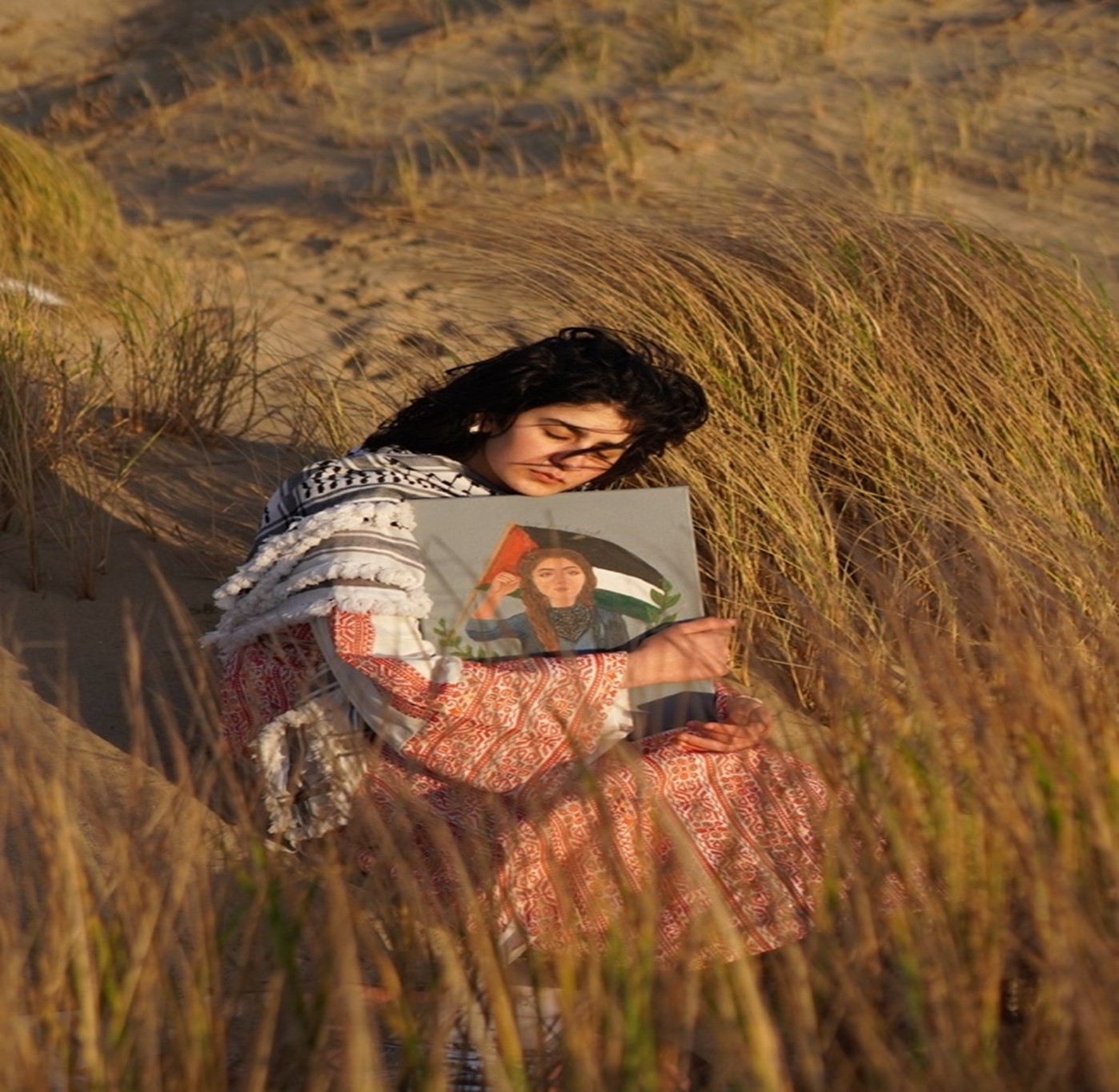
Figure 1: photograph and art by my sister Maha wearing Palestinian tatreez thobe and kufiyah
As Palestinian exiles, we live inside the ongoing Nakba. In worlds apart, we create our own connections to our homeland. The Palestinian exile refers to the dispersion of Palestinian people beyond the borders of historic Palestine. The Palestinian exile [It] has its roots in a series of historical events, primarily Al Nakba and the establishment of the settler-colonist “State of Israel” in 1948.
Historical Context:
• Nakba (1948): Al-Nakba, meaning “catastrophe” in Arabic, refers to the mass displacement of Palestinians during the 1948 Arab-Israeli War. Hundreds of thousands of Palestinians were forced to flee or were expelled from their homes, leading to the creation of a significant Palestinian refugee population.
• 1967 Six-Day War: The Six-Day War resulted in Israel gaining control of the West Bank, East Jerusalem, Gaza Strip, and the SYRIAN Golan Heights. This further contributed to the displacement of Palestinians and the expansion of the diaspora.
• Exile Communities: Palestinian communities in the exile are dispersed globally, with large populations in neighbouring Arab countries, Europe, North America, and other parts of the world. They maintain a strong connection to their Palestinian identity and the ongoing struggles in the homeland.
• Refugee Camps: Palestinian refugee camps were established in host countries, particularly in neighbouring Arab states. These camps were intended to be temporary solutions but have persisted ever since, housing generations of Palestinians in inhumane conditions without the possibility to leave.
• Identity and Solidarity: Despite being scattered across different regions, Palestinians in the exile have maintained a strong sense of identity and solidarity. The Palestinian cause for self-determination, the right of return for refugees, and the establishment of an independent Palestinian state remain central themes for the diaspora.
• Political Activism: Palestinians in the exile have played a significant role in international activism; advocating for their rights and raising awareness about the Palestinian struggle. They contribute to global discussions on the Israeli military occupation and work towards achieving justice and recognition for their people.
My paternal grandfather, born in 1875 in Safad, Palestine, faced the challenges of being an orphan during the period of Ottoman occupation, which lasted until 1915. Following the Ottoman era, the British Mandate of Palestine took control. In this turbulent time, Palestinians were denied the right to own guns or even knives; possession of such items led to immediate arrest. Meanwhile, Zionist militias, including the Haganah militias, were actively training.
My other grandfather, born in 1927, attended secondary school in Safad. The violence in 1948 forced his family to leave their hometown, al-Tabigha, and al-Qudayriyya, due to the massacres and genocidal acts in neighbouring villages committed by the Haganah militia. Forced to seek refuge, he fled to Golan, staying on the shores of Lake Tiberias with the hope of returning as promised by Arab leaders. Unfortunately, the promise was never fulfilled, and Israel banned the return of any Palestinian citizens who left during the Nakba in 1948.
His family faced hardships, struggled with diseases and food shortages. Eventually, they settled in Al-Butayha in Golan, where my grandfather became a farmer. My father, born in 1963, spent his early years in Golan until 1967’s Naksa, when Israel occupied the region. The family was once again forcibly displaced, finding temporary refuge in a camp in Daraa from 1972 to 1976. Finally, they resettled in Damascus, specifically in Sbeineh. Here, my grandfather purchased land, built a small home, and started a new life. Working as a truck driver, he provided for the family, while my father and his siblings pursued education.
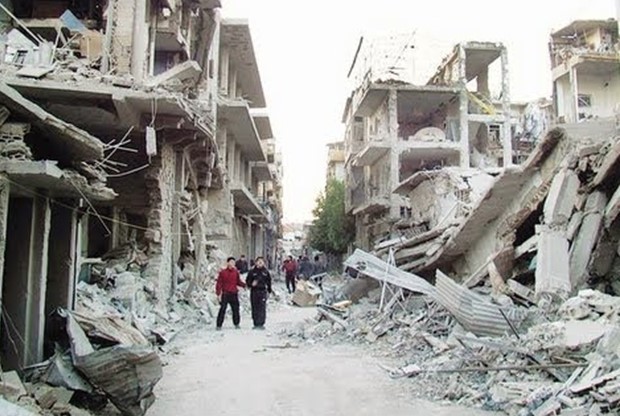
Figure 2: Sbeineh camp during the civil war
My father later attended university, initially working as a teacher in UNRWA schools. After that, he transitioned to entrepreneurship, establishing his first bread factory. His success in the bakery industry led him to become the President of the Bakery Owners Association in Syria. Eventually, he joined the real estate world.
But the war in Syria happened, and once again he had been forced to leave his home and seek asylum in Europe; He decided to continue his legacy and open a bread factory in the Netherlands, Al Hasnaa bakery.
Despite my father’s success in real estate, he could never own more than one home or purchase land, necessitating my dad to trust Syrian friends to legally own what was his, under their name.
Although legal property ownership was necessary for him since his work was to buy and sell houses, buildings, and land, he often faced problems with friends and Syrian relatives because of it.
I never understood how he could trust a human with all his property and hard work, knowing that human greed is stronger than their love and respect for him. But he had no choice, we were seen as second-class humans in the country I was born in.
I still remember my reaction when they first told me that we can only own one home; I was shocked, disappointed, and enraged. Not because of not being able to ‘own’ but because we were still not equal.
He, who has worked very hard, who I couldn’t see from morning to midnight because he was busy with work trying to build us a life, was still not considered a citizen in this country. It saddens me that he had — and still has to — face many obstacles simply because he was born in exile. For years, we have lived, studied, started up businesses there, trying to start new lives, trying to fit in, working and living alongside Syrians.
At some point, we were joining and taking part in their land, their work, and their lives, instead of being just temporary refugees. But this wasn’t a Syrian thing. Because even here in Europe, Palestinians, and Syrians experience this. We often hear ‘they’re taking over our jobs and education’ so, it’s just a human thing; we often feel threatened when we see someone not from our country starting from zero, and still managing to succeed.
Although we did feel like one, there was something that separated us from each other. This was their home, and we are just being impostors, invaders. It was a feeling I always had. They had rights; we did not. The Syrian government made sure not to let us forget that we are Palestinians.
We will never forget, and that is a fact that we carry in our hearts and minds all the time. So, they made rules and exceptions just for us, to remind us that this is not and will never be a place for us to settle in while we wait for our great return. We cannot apply for citizenship; holding refugee documentation throughout the generations that followed my grandfather as identification.
Small things made me feel out of place. Even though my parents and I have spent a lifetime in Syria, living and loving next to each other. Yet, there was something that separated us. We have lived surrounded by Syrians; our neighbours were Syrian; they were like my family. We shared our childhood memories together. In fact, my sister is now married to their son and expecting a Palestinian-Syrian kid soon, the ultimate mix between two cursed nationalities. She is not the only one who is married to a Syrian; my two other sisters as well. Four of our grandchildren are Palestinian-Syrians.
But, despite all of that, we were still impostors. I remember back in Damascus when I used to play with my friends; they would call me and my other Palestinian friends ‘فلسطيزي’ a combination of ‘Palestinian’ and ‘ass’ – ’palestass.’ We used to laugh about it. Until one day, I was so fed up with that ‘joke’ that I decided to do something about it. I went to my friend’s mother and complained. She scolded her son and told me ‘We’re one. Palestinian or Syrian, it doesn’t matter’ and apologised for his behaviour.
Another famous nickname was ‘اطفال الحجارة’ and it translates to ‘kids of stone’ because Palestinian children resist the Israeli occupation’s tanks with stones and rocks. Because it was their only way to resist. At first, I would get annoyed and frustrated. Annoyed because they felt the urge to remind me of my Palestinian identity all the time. Why? I never understood. But when they used to mock me with that nickname, I felt very powerful. I used to tell them: “I wish to be a kid of stone and defend my country. But I’m here with you, playing and laughing. So, stop calling me that because it doesn’t offend me.”
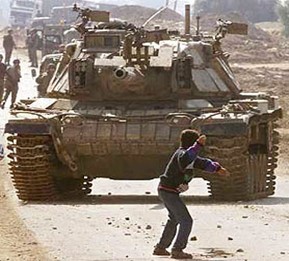
Figure 3: Iconic photograph of Odeh throwing a stone at an Israeli tank in the Gaza Strip during the Second Intifada, 29 October 2000
After the war, we moved from my hometown to the city. Another forced displacement. Another war. My extended family was again, all over the world. I was alone with my family in Damascus.
I was young at that time, and not very connected to my roots. My Syrian accent started taking over my Palestinian accent, my Syrian friends were affecting my identity. I had no one around me embracing their Palestinian heritage. I was alone in a foreign city, disconnected from my roots.
But after living in the Netherlands, I felt the urge and constant need to embrace my Palestinian roots. Because it was my last opportunity to hold on to her. I either lose myself or find her and fight for her. So, I decided to fight for her; I now wear my keffiyeh all the time, along with some tatreez clothing, whether it’s a belt, headband, or a bag, or my map of Palestine pendant. And I would often do photoshoots with my sister Maha to show our culture and embrace our Palestinian and Bedouin heritage.
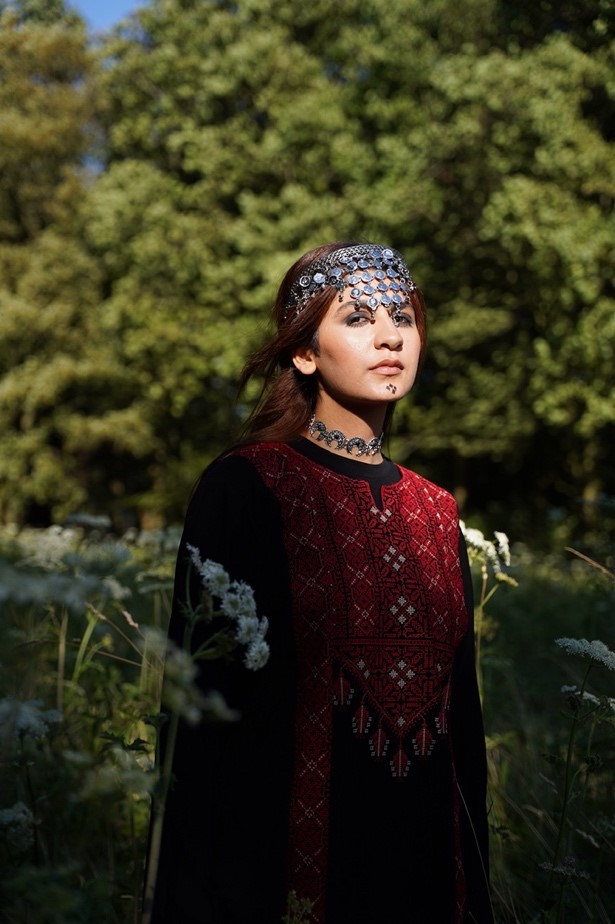
Figure 4: Palestinian thobe with Palestinian inspired headpiece
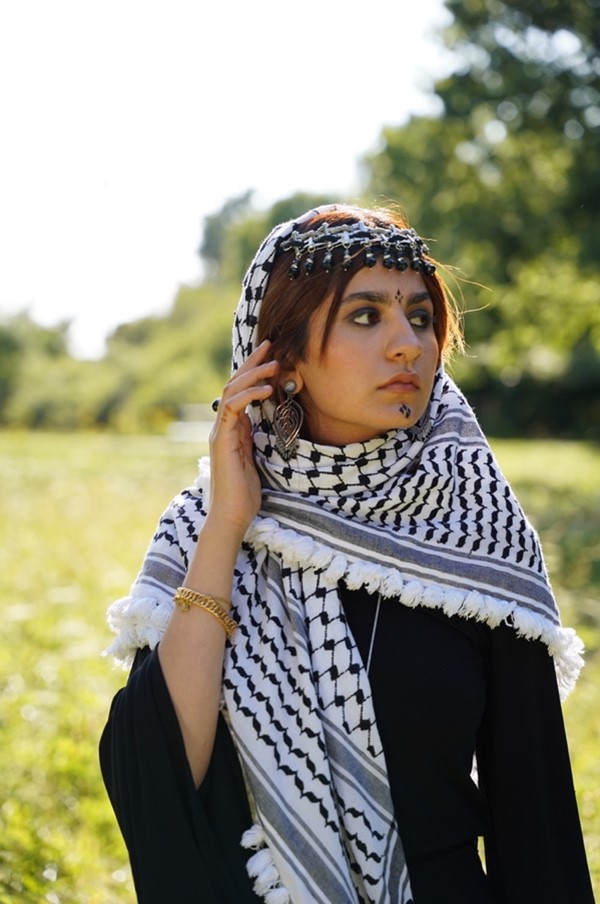
Figure 5: Bedouin inspired face tattoo and outfit with the Palestinian kufiyah
I remember last May when I attended a Palestinian culture night and read a letter I had written to Palestine, explaining my lostness between two identities:
‘Dear Palestine,
How are you? I know that you’re not doing well; I’ve heard it on the news, I’ve heard it from your own people. So, forget about it. Let’s start over again.
Dear Palestine,
Lately, I have been thinking and asking myself; “What am I to you?” Am I a Palestinian, Syrian, both, or a nobody? A nobody; nakira (نكرة) in Arabic.
Am I a Palestinian, Syrian، nakira, or simply a human? Am I a Palestinian just as much as a person who is born and raised in between your arms? Or does being born and raised in Syria make me less of a Palestinian? Does my Syrian accent steal my Palestinian-ness away from me?
“Where are you from?” is one of the hardest questions to ever answer. I’m Palestinian, born and raised in Syria. And as my friend calls me in her thesis, I am a mankuba. Mankoub (منكوب) in Arabic is a victim or a stricken person. She asked me the other day to translate mankoub in my words. I found it a bit hard even though I am a mankuba and I know better than anyone what a mankoub is.
So, I tried, and I tried, and I tried. The only thing that came up to my mind: a Palestinian. Because if you have the slightest Palestinian roots in you, you are a mankoub. Not by choice, not by chance. You are forced to be one, by God, by fate, by the Israelis, and of course by the Arab leaders.
But let’s say, I did have the choice or the freedom to choose another nationality. I would still choose you. I still choose to be your daughter. To be Palestinian.
I am okay with the struggles that come with it because one day I know, I will just be Palestinian. Not stateless, not a refugee, not a nobody, just Palestinian.
And I know that one day, they will teach kids about you and me. About how strong we were, about how patient we were, about how we never stopped fighting for freedom. And as a girl who struggles with her own existence, being a Palestinian gives me the chance to say to myself:
“I am Palestinian; therefore, I exist. I am Palestinian; therefore, I exist.”
From your burdened mankuba, Fatima. Who also took her share of her name and was weaned away from you.
I remember reading this letter and shedding tears, having to take breaks between every word. It had a heavy burden on my heart and on everyone who was in that room with me. And it made me feel more connected to my Palestinian roots more than ever. After my reading, other fellow Palestinians came up to me and told me; “it doesn’t matter where you were born. Nothing can change the fact that you are Palestinian.”
And they were right. How can I question such thing? Isn’t this what the occupation wants? For me to feel lost between Palestine and another country? For me to feel out of place…
How did I allow them to win?
After that realisation, I decided to not let them control my subconscious, to not let them cause this loss. This confusion. I will fight and resist until my last breath.
I’m Palestinian, therefore, I exist.
I’m Palestinian, therefore, I resist.
After that event, I joined SfP (students for Palestine). and decided to be more active with the cause and fight with them for the academic boycott. To surround myself with people who are actively fighting for Palestine and striving to deepen my connection with my Palestinian identity. To keep it alive. And it sure helped, as I now feel less isolated in this often-harsh world.
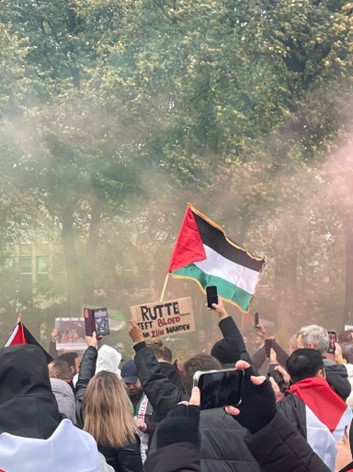
Figure 6: protest for Palestine in The Hague
It truly astounds me how people and students from different nationalities, beliefs, and genders are coming together to stand united in the fight for Palestine—a cause that may not directly be their own. They have chosen to advocate for it. We all share a common goal: a free Palestine. Together, we fight for its freedom, and in this shared struggle, we are all Palestinians.
Let’s persist in our efforts, continue raising awareness, supporting, participating in boycotts, and attending protests.
Peace through Dialogue
Donate Now
Your one-off or monthly donation makes a big difference!
Follow us
Follow us on YouTube, Instagram, Twitter, and Facebook
Collaborate
Interested in collaborating or volunteering?
